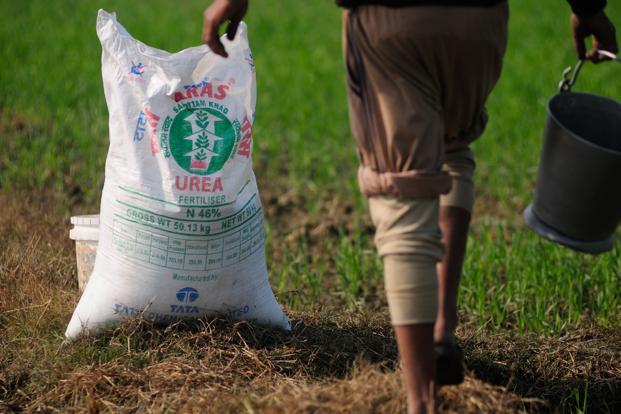The World Bank Group says it has responded to the overlapping global crises by deploying 114.9 billion dollars in financing in 2022.
A statement posted on the World Bank’s website on Saturday said it provided advice and financing in response to the sharpest economic slowdown in eight decades, rising inflation, deepening food insecurity, war and fragility, and the continued negative impact of the COVID-19 pandemic.
“Amid these devastating crises, the World Bank Group deployed a record 114.9 billion dollars in the year under review.
“Commitments during the year were informed by our knowledge work and helped countries address rising food prices, manage refugee flows, and bolster health preparedness
“The bank also helped maintain private sector trade, and support efforts to mitigate and adapt to climate change, among others, benefitting especially the poor and most vulnerable.”
The statement quoted the World Bank Group President, David Malpass, as saying “developing countries are facing multiple challenges from war to surging food and energy prices.
“This deepens inequality and leads to reversals in development gains.”
Malpas said the World Bank Group had responded with urgency, scale, and impact.
“We have committed consecutive surges of financing, analytical support, and policy advice. First in response to the COVID-19 pandemic, and now to address the food crisis, the war in Ukraine, and its spillover effects.”
The statement said the International Bank for Reconstruction and Development (IBRD) and International Development Association (IDA), both part of the World Bank committed 70.8 billion dollars in assistance in 2022.
According to the statement, its highest ever level of commitments is nearly 70 per cent higher than the pre-crisis average of commitments from 2013 to 2019.
“That figure included 33.1 billion dollars from IBRD in support to middle-income countries as well as a few higher-income countries.
“With 37.7 billion dollars in grants and zero-or low-interest loans to the world’s poorest countries from the IDA.”
The statement said that since the start of the COVID-19 pandemic, total World Bank Group financing reached 272 billion dollars, including 52.6 billion dollars in the last quarter of 2022.
It said as of June 30, 2022, the World Bank had approved 10.1 billion dollars in financing for vaccine acquisition and deployment in 78 countries, of which 4.6 billion are for 42 countries in Africa.
“Over 600 million doses have been contracted with approved bank financing, of which more than 430 million have been delivered.”
It said the bank was also setting up a financial intermediary fund to strengthen pandemic Prevention, Preparedness, and Response (PPR) capacities at national, regional, and global levels, with a focus on low- and middle-income countries.
“With over one billion dollars in financial commitments already announced, the fund will bring additional, dedicated resources for PPR, to incentivise countries to increase investments, enhance coordination among partners, and serve as a platform for advocacy.”
According to the statement, for the 15 months from April 2022 to June 2023, financing is expected to reach 170 billion dollars.
It said an important component of this funding would be devoted to food security, including social protection and projects in agriculture, nutrition, water, and irrigation.
“The World Bank has made available about 30 billion dollars over these 15 months as part of a comprehensive, global response to the ongoing food security crisis.
“Some 12 billion dollars of which will be new lending, informed by our substantial data and analytical work on food and nutrition systems.
“Since April 1, the World Bank has delivered 32 food-crisis related operations and committed 5.3 billion dollars in this area.”
The statement also said that the bank continued to rapidly increase its climate financing in 2022, in line with the World Bank Group’s Climate Change Action Plan (CCAP) for 2021-2025.
“The World Bank’s climate finance totalled a record 26 billion dollars which accounts for 37 per cent of commitments in 2022, an 83 per cent increase from 14.2 billion dollars in 2019.
The World Bank Group said it played a critical role in building and enabling the private sector in developing countries, which it does through the International Finance Corporation (IFC).
It said the IFC had a record year in 2022 with commitments reaching an all-time high of 32.8 billion dollars, including 12.6 billion dollars of commitments for IFC’s own account.
“Out of the 12.6 billion dollars, 3.5 billion dollars went to IDA countries and Fragile and Conflict-affected Situations (FCS).
It said the Multilateral Investment Guarantee Agency (MIGA), which mandate was to drive impactful foreign direct investment to developing countries, issued 4.9 billion dollars in new guarantees.
It said out of the 4.9 billion dollars, 32 per cent was in IDA countries, 12 per cent was in FCS countries, and 28 per cent supported climate finance.
The statement further said progress was also made in efforts to fully incorporate women into economies.
According to the statement, an unprecedented 90 per cent of the World Bank’s 2022 operations are helping to close gender gaps, well above corporate commitments.













